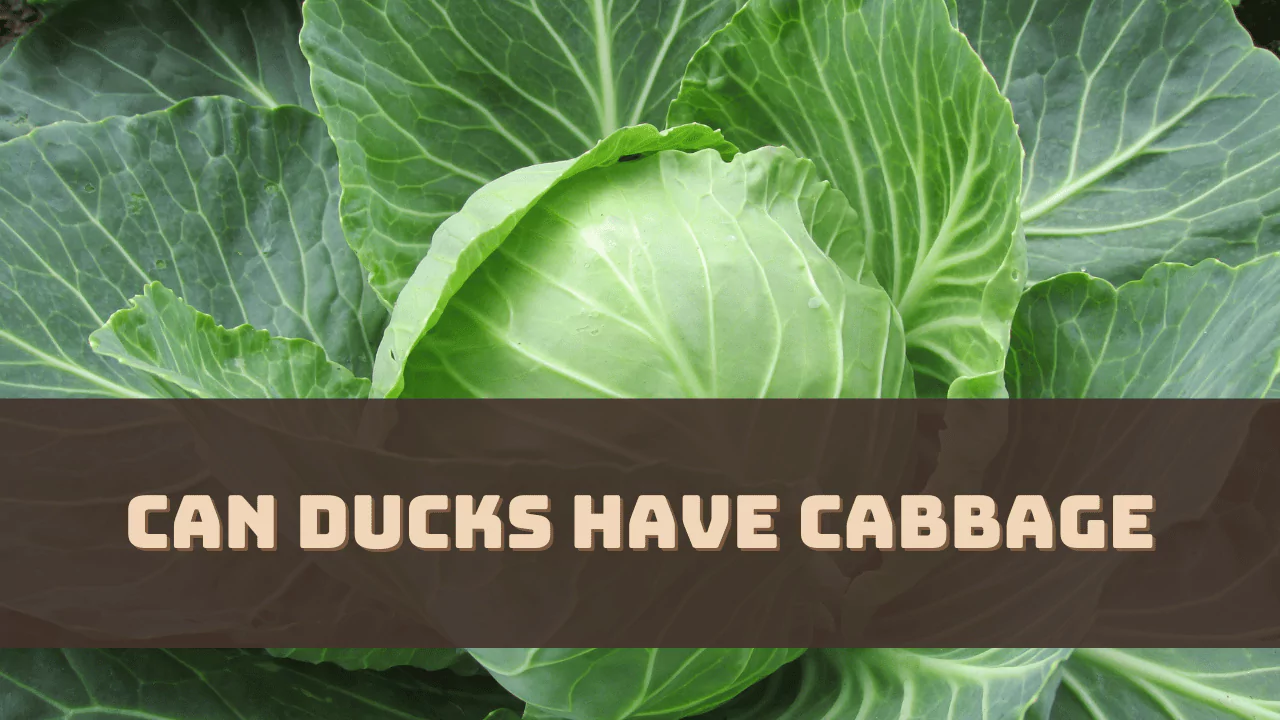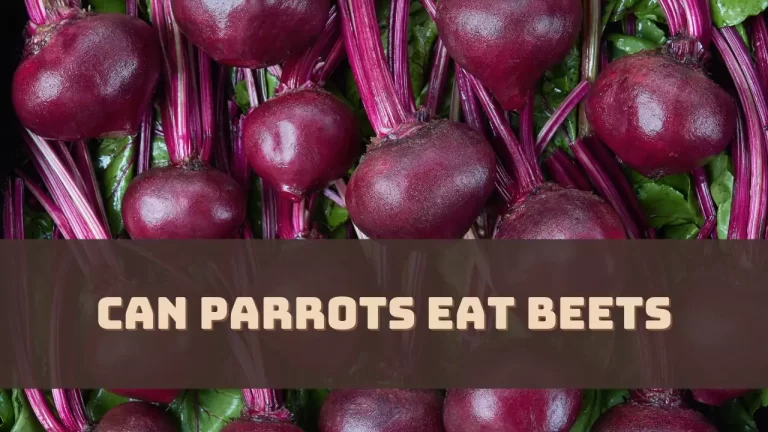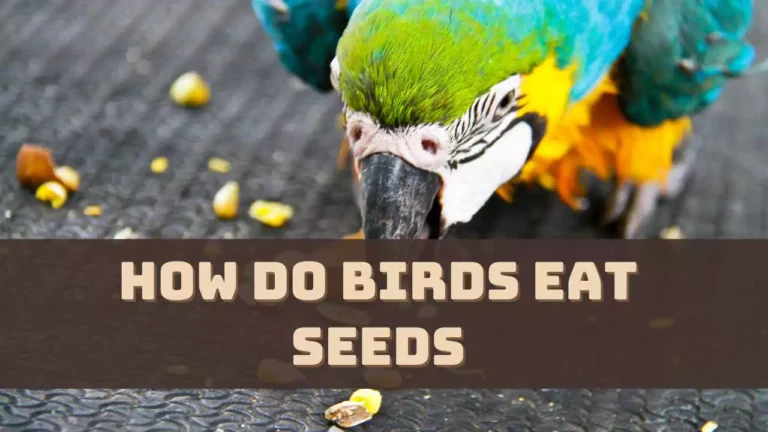Yes, ducks can have cabbage. It is one of the most nutritious vegetables and is also considered for its easy-to-digest capability. Cabbage provides essential vitamins and minerals and it can be fed either by grating it, boiling it, or frozen cabbage.
If you have never feed your duck cabbages or any leafy vegetable, then at first serve them a tiny bit of the leaf and allow them to gradually become habituated to eating it.
There are various other methods to feed cabbage to ducks, but before that let’s learn how often you can feed cabbages to ducks.
How Much Cabbage Can You Give to Ducks?
You can feed cabbages regularly to a duck but in a limited portion. Overfeeding can lead to severe health consequences, such as diarrhea. Thus, it should be served along with other fruits and vegetables, such as carrots, and boiled and mashed potatoes, making a balanced and healthy diet for the ducks.
What are the Benefits of Cabbage for Ducks?
Here are the benefits that a duck gains nutritionally if you feed cabbages:
Improve Vision
Vitamin A is the main nutrient of cabbage which helps in maintaining vision and also supports them during the reproduction procedures. Vitamin A enhances the immune system and so it is indeed an incredibly health-beneficial option when served with spinach. It is also a good source of Vitamin K and beta-carotene.
Promote Cell Growth
Cabbage has beta-carotene which helps in improving cell growth and vision. It also has potassium that assists in maintaining the construction of muscles and balances the fluid in them. Cabbage also helps in maintaining and improving nerve signals.
Supports Egg Laying
Dogs need calcium as the primary nutrient when they are about to lay eggs. Egg shells are made of calcium which protects the duckling before it is hatched and cabbage is the best supplement for calcium and for the development of future baby dark
Maintenance of Bones
Cabbage consists of phosphorus which is essential for strong bones and also helps in ligament and muscle construction.
Building Up Energy
Niacin, Vitamin B3, can be found in cabbage, which is a nutrient responsible for transforming protein, fats, and carbohydrates into energy.
Keeps the Heart Healthy
Cabbage contains antioxidants that work against cancer, cardiovascular disease, and also dementia. It also has high fiber content as well as minerals, such as potassium, iron, manganese, magnesium, and calcium. Cabbage also helps in the production of red blood cells as they have vitamin B9 folate.
What are the Risks Associated With Feeding Cabbage?
Overfeeding cabbage can lead to diarrhea or bloating issues in a duck. Cabbage also has a lot of water content, so daily consumption can lead to loose motions. Also, if the cabbages are not cut into smaller proportions, then it has a risk of choking the duck.
How Can You Prepare Cabbage for Your Duck?
You need to make the cabbage manageable and well-prepared before you serve it to the ducks. Cabbage contains complex sugar making this leafy vegetable, high in fiber content, so it becomes difficult to digest it in raw form.
Adult ducks mostly do not face problems digesting these raw vegetables due to the existing smell. They can act fussy, so it is always better to cook these vegetables on a low flame for about 10 minutes, allow them to cool down, and then serve them to the ducks. It does not keep the cabbage raw and makes it easy for the ducks to consume. Also, never add spices or salt, while you are cooking the cabbage.
The cabbage should be shredded into smaller pieces so that it does not create any choking issues for the ducks. You can also grate the cabbage or cut it into smaller fine pieces for the easy to swallow and quick digestion.
You can serve the cabbage with other vegetables, such as boiled or mashed potatoes, or any other vegetable in place of potato. You can also add several fruits to encourage them to eat and enhance their taste.
Which is More Preferred: Cabbage or Lettuce?
When compared with lettuce, cabbage is more preferred to feed a duck. Remember not to feed too many cabbages to a duck, as it can create stomach problems. Other than this, you need to add other veggies, such as squash, green beans, and carrots for a balanced diet.
Are All Variety of Cabbages Healthy for a Duck?
All varieties of cabbages are healthy for dark, which include Brussels sprouts, and red cabbage. Though these are safe and healthy for ducks, you need to feed them in moderation.
Can You Feed Cabbage to Ducklings?
Yes, you can feed, either cooked or raw cabbages to ducklings. But, you have to wait for 4 weeks, after they hatch, and then introduce cabbage in small portions. If the ducklings grow a taste for cabbage, then you can convert it into frequent meals.
However, while feeding cabbages to ducks, you must cut them into smaller pieces to make it easy for them to consume or you can also grate the cabbages. You also need to check the moderation or amount of cabbage that you are feeding to the ducklings, otherwise they will suffer from diarrhea and grow weak.
Can You Serve Wittering Cabbages to Ducks?
No, wittering cabbages cannot be served to ducks, as these are extremely toxic for the duck’s health. You must identify a wittering cabbage and eliminate it, but if you think that the rest of the portion of the cabbage is edible then you can serve it, and throw away the rest.
Can You Give Frozen Cabbage to Ducks?
Yes, ducks can be given frozen cabbages, but after you have taken them out from the freezer, keep them on the table and allow them to get to room temperature and then you can serve them to the ducks. Otherwise, fresh cabbages are an ideal choice for these water birds.
Can You Mix Cabbage with Pellets?
Yes, ducks can get bored of eating the same type of food or cabbage every day. So, you can make their meal exciting and tasty by adding pellets. You can take a handful of chopped cabbage, mix them with pellets, and then serve them.




